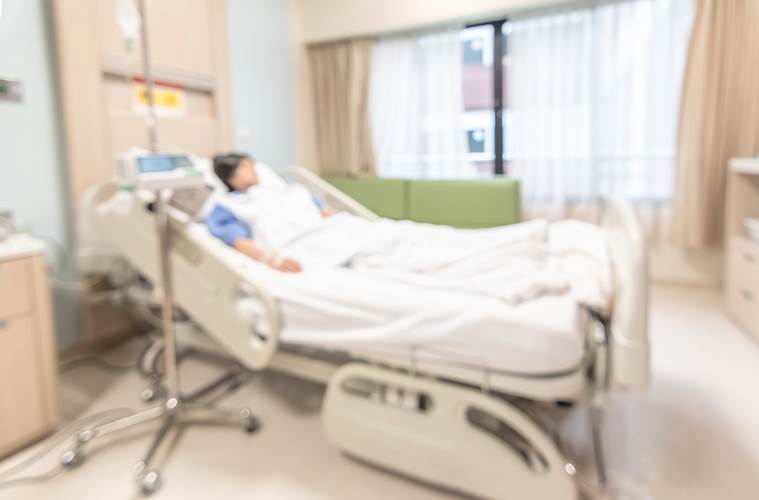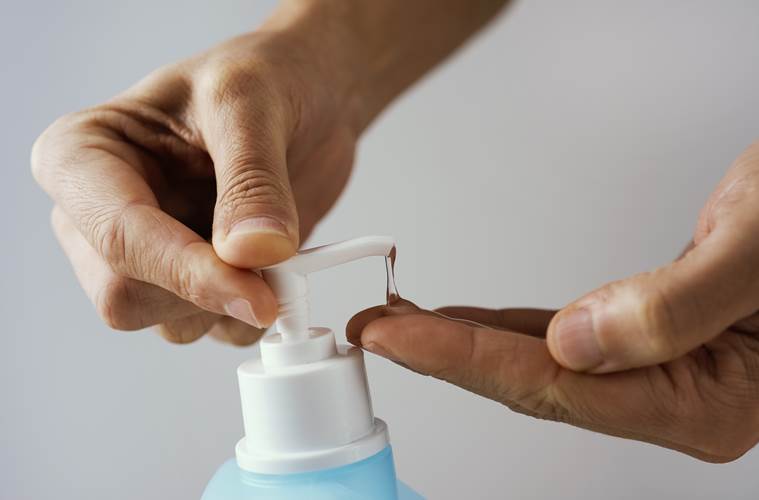Docs on duty: ‘My son says I love the corona virus more than him’
"I've not hugged my six-year-old in 15 days," shares a doctor.

When it comes to doctors, we think of them as healers, magicians, and superhumans even. In desperate times such as now, we depend heavily on them and consider their every word as gospel. Sometimes, we take them for granted, too, assuming they are here for our every beck and call. And while they do make themselves available, answering our queries and frantic calls every now and then, they are human beings, too, with their own personal lives. So, while they take the frontline in this crucial battle against the novel coronavirus, we look at the more tender moments of their life, mainly the equation with their children in these difficult times.
Dr Kirti Sabnis, infectious disease specialist & HIV physician at Fortis Hospital Mulund and Kalyan says long hours at the hospital has been taking mental and physical toll. “We generally try not to bring work home, but that’s not possible now. So, in our mind, there is always the fear that we may take the infection home. I am practising social distancing at home also. My son is six years old and I have not been able to hug him for the last 15 days; I have not slept in the same bed as his in 15 days. I am trying to stay away from the family, in a separate room. The physical stress is not much, but the mental stress is more. My son says I like the coronavirus more than him. He says: ‘my mother does not love me anymore, she loves the virus’. It has come to that,” she laughs.

Dr Sabnis says her son does not understand the concept of social distancing. “As a parent, it takes a lot of mental strength. Since I am a doctor I will not get anxious if my son coughs or sneezes, because I can discern the symptoms of COVID-19, which many other parents cannot. But, my biggest challenge is to try and not bring the infection home. And as far as the kids are concerned, they cannot always vent it out like us adults. Kids cannot channel their emotions. And now they are confined to the house, not allowed to follow their usual routine, play, go out. This can affect them mentally, and as a parent, I am worried about that,” she comments. She confesses, “It is difficult to find a balance, but I am managing elective patients on phone, mostly. When I am home, whatever time I have, I try to spend time with my son — trying to do activities which do not involve contact.”
ALSO READ | Coronavirus and pregnancy: Here’s what you need to know
Dr Kishore Kumar, neonatologist and pediatrician at the Bengaluru units of Cloudnine Hospital, says that despite wearing the protective gear and taking precautions, doctors are always aware that they are at risk; and worried that they may transfer the infection to the family. “When we come home, we keep ourselves mentally busy and positive by reading books and taking up old hobbies. It is especially difficult for doctors living in gated societies; people are wary of them because they go to hospitals,” he says.
While Dr Kumar’s Malaysia-returned son is in home quarantine right now, his daughter is stuck in the US at the moment. “She is only 19 and is feeling lonely there. She is also nervous because the infection is spreading rapidly out there. I tell her to not worry about whatever is happening outside if she manages to stay in,” he shares. Dr Kumar’s advice to other doctors who are parents is that it is important to keep physically and mentally fit. “Keep taking enough breaks and stay mentally occupied,” he recommends.
Dr Shibal Bhartiya, single mother to her 13-going-on-14-year-old son Aradhya, writes in a blog titled “Aradhya ki Anya” (that she shared on Facebook): “…there is the other part of my life, ophthalmology. Dr Anita Sethi heads the department, and last week we decided, as the two primary eye doctors at Fortis to run on a skeletal staff, so none of us would have to be exposed to more than a day in the OPD. Because, even when people are dying, or under threat of death from a pandemic, we are committed to saving eyes, for that is what we know how to do best.”

Bhartiya, who co-parents her son with her ex-husband, writes that after a particularly long and difficult day at work, she thought about her son, about what would happen to him if she were to be infected by one of her patients. “I wondered how Aradhya would cope, if I was to be taken away for medical treatment, and my house quarantined. If he, my bright bright boy with a heart so kind, will need to bring in his fourteenth birthday alone, scared and quarantined, his father under curfew, because his mother decided to put her profession before what must be her first instinct. Is this what makes me a good doctor? Is this also what makes me a terrible mom?” Dr Bhartiya writes in her poignant blog.
For Dr Nidhi Jain, a gynecologist from Bhopal, parental guilt is a constant. “My seven-year-old daughter is baffled, because we are asking her to stay at home and not go outside. My husband (a doctor as well) and I have fixed a schedule for all three of us, so our daughter is home-schooled properly. I have to go for emergencies, every alternate day, sometimes in the night, too. We are keeping our daughter busy by playing indoor games like carrom and cards with her. But, sometimes I feel guilty when I am not able to give her the time that I think she requires. Since I am a private practitioner, I am not obliged to do a 24-hour duty, but whenever I do step out, she asks me: ‘Mummy, why are you going out at all?’ She wants both her parents home,” she says.
ALSO READ | Coronavirus: Why you should avoid visiting an IVF clinic now
Consultant obstetrician and gynecologist at Cloudnine, Pune, Dr Mini Salunkhe, has two grown-up daughters. Salunkhe comments, “With the COVID-19 situation, I am doing my emergencies, coming back home and talking to patients via video consultation. So, it is not like we get to rest at home.” She suggests, “Doctors who are young parents have to strike a balance. Children become fidgety. So, when they come home, they have to detach from work and play with the child. In these trying times, children cannot be taken out either. But they can be entertained through various games and teaching channels. Talking to them and eating with them is advisable. They can be asked to bake a cake on their own, help around the kitchen, etc. Most importantly, the habit of reading has to be inculcated, because parents cannot always be with the child.”
? The Indian Express is now on Telegram. Click here to join our channel (@indianexpress) and stay updated with the latest headlines
For all the latest Parenting News, download Indian Express App.
Source: Read Full Article



